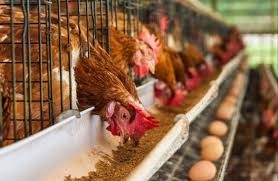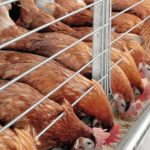Nigeria’s poultry industry contributes more than a quarter of the country’s agricultural Gross Domestic Product (GDP), making it one of the most significant pillars of the food economy, according to the Poultry Association of Nigeria (PAN), FCT chapter. The association disclosed this during activities to mark World Egg Day, celebrated annually on the second Friday of October. The 2025 theme, “Mighty Egg: Packed with Natural Nutrition,” underscores the role of eggs in both nutrition and national development.
A representative of the FCT chapter, said poultry farming provides livelihoods for over 25 million Nigerians, accounting for nearly 10 per cent of the nation’s population. He added that Nigeria remains Africa’s largest egg producer, with an estimated output of over 650 million tonnes annually, reinforcing the sector’s economic weight.
Despite its impact, the industry—dominated by smallholder farmers who constitute over 60 per cent of poultry producers—faces persistent challenges. High feed costs, expensive day-old chicks, limited access to finance, and inadequate government support continue to strain small-scale players. While recent government policies have led to a drop in maize prices, the association noted that the decline has not translated into lower feed costs for smallholder farmers.
“To benefit from cheaper maize, a farmer would need a minimum of 8,000 layers to produce feed independently. Most farmers in the FCT do not have that scale,” he explained, adding that larger producers with access to feed mills continue to dictate market prices, squeezing small businesses out of competitiveness.
He emphasised that aligning feed prices with current input costs would ease production expenses and ultimately reduce egg prices for consumers. In today’s economic climate, eggs remain the most affordable source of protein, with a single egg costing between N150 and N200.
Highlighting the theme of World Egg Day, a former chairman of the PAN FCT chapter stressed the nutritional power of eggs, which are rich in protein, and essential vitamins such as A, E, and B-complex. He said eggs play a vital role in combating malnutrition, particularly among vulnerable populations.
He urged government intervention through grants, credit facilities, tax reliefs, and market access, noting that policies such as bulk egg purchases for schools, orphanages, and social welfare programmes would sustain production and encourage farmers to remain in business.
With feed inflation and production costs threatening the survival of thousands of small poultry operations, stakeholders insist that strategic support for the sector is critical not only for economic growth, but also for national food security.










